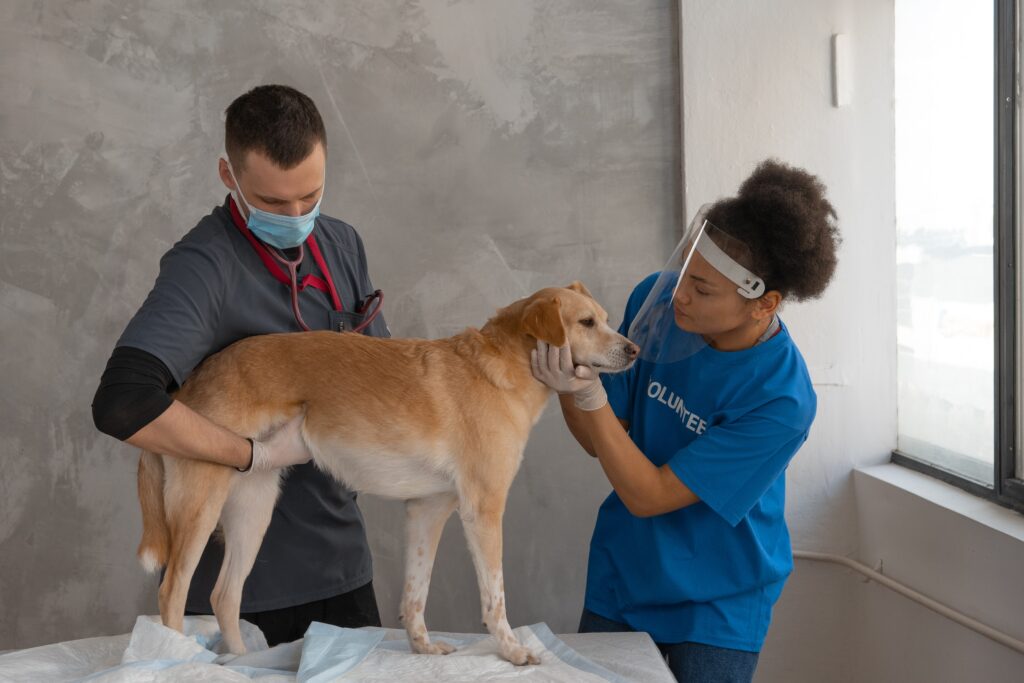Why Would Your Pet Need the Services of a Vet Diagnostic Lab?

When it comes to the health and well-being of our furry companions, veterinarian services are indispensable. Just as humans need comprehensive medical care, our pets also benefit from the advanced diagnostics and specialized treatments that modern veterinary medicine provides. One key aspect of this is the use of veterinary diagnostic laboratories, which play a pivotal role in detecting and managing numerous health conditions.
The Role of Veterinary Diagnostic Laboratories
A visit to your local vet can often involve discussions or recommendations to learn more about how veterinary diagnostic laboratories can assist in your pet’s health management. These specialized facilities are equipped with the technology and expertise to conduct various tests that support veterinarians in accurately diagnosing and treating your beloved pets.
Whether it’s for preventive screening, diagnosis, or monitoring of a chronic condition, a vet diagnostic lab is a vital part of your pet’s healthcare team. Below are four subsections covering the list post format and illustrating how a diagnostic lab can benefit your pet:
The Need for Vet Diagnostic Lab Services
1. Early Detection Saves Lives
One of the essential reasons your pet might need a vet diagnostic lab is for the early detection of diseases. Regular check-ups often include blood tests, urinalysis, X-rays, and other diagnostics that can uncover health problems before they become more severe. The ability to diagnose a condition in its infancy can often mean a better prognosis for your pet and a less complicated treatment plan.
- Preventive care screenings help to catch diseases like diabetes or kidney issues, which can be managed more effectively when found early.
- A range of diagnostic tests, such as blood panels and imaging, offer a detailed insight into your pet’s health status.
- Genetic testing can alert pet owners to potential hereditary conditions, enabling preemptive measures to be taken.
2. Comprehensive Health Analysis
When pets exhibit signs of illness or unusual behavior, a thorough health analysis by a vet diagnostic lab can get to the root of the problem. Vets can only gather so much information from a physical exam, and often, the inner workings of our pets’ bodies require a closer look through scientific testing.
- Biochemical profiling offers information on liver and kidney function, as well as electrolyte status.
- Microscopic evaluations of blood, urine, or tissue samples can highlight issues not visible to the naked eye.
3. Specialized Care for Chronic Conditions
Chronic illnesses such as heart disease, arthritis, or hormonal disorders necessitate ongoing monitoring and intervention, frequently involving comprehensive diagnostics conducted regularly. These periodic tests ensure that veterinarians can adjust treatment plans as needed for optimal management of the pet’s condition.
- Long-term medication efficacy is evaluated through repeated testing.
- Disease progression is monitored to adjust care promptly.
4. In-Depth Understanding of Your Pet’s Health
While a regular vet clinic provides great care, the detailed analysis offered by a vet diagnostic lab goes deeper into the intricacies of your pet’s health. Such an in-depth understanding is critical, especially when dealing with complex diseases that require a precise diagnosis in order to tailor the most effective treatment.
When Surgery is Necessary
There are circumstances where, despite the best diagnostic efforts, surgery may become imperative. Pets, like humans, can develop conditions that warrant surgical intervention, from routine procedures like spaying and neutering to more intricate operations due to illness or injury.
In such situations, the expertise of vet surgeons at Animal Hospital of Nashua or similar establishments is invaluable. These professionals work closely with diagnostic labs to ensure they have a comprehensive understanding of the pet’s health before, during, and after surgery.
Internal Matters of Great Concern
Another aspect of veterinary care that often relies on advanced diagnostics is internal medicine for dogs in Nashua, NH, or any other locality, which encompasses a broad spectrum of internal body systems. Veterinarians specializing in internal medicine are experts in managing complex diseases that affect organs like the liver, kidneys, and heart, making diagnostic labs their quintessential partner in providing exceptional care.
5. Keeping Infections at Bay
Infection control is an area where vet diagnostic labs contribute greatly. Identifying pathogens quickly and accurately means that treatment can commence without delay, potentially saving your pet from serious, even life-threatening, complications.
- Parasitic infestations can be pinpointed through fecal exams and blood tests.
- Bacterial infections are identified via cultures and sensitivity tests that also inform antibiotic selection.
- Viral infections, such as feline leukemia or canine parvovirus, are diagnosed through specific antigen and antibody testing.
Four Key Benefits of Vet Diagnostic Labs
1. Enhanced Diagnostic Capabilities
- Advanced blood work and urinalysis profiles
- Access to modern imaging techniques such as ultrasound and MRI
- Molecular diagnostics for genetic disease screening
2. Tailored Treatment Plans
- Personalized medication and therapy based on diagnostic outcomes
- Adjustments to treatment strategies in response to lab results
- Faster recovery times due to precise treatments
3. Support for Vet Specialists
- Close collaboration between primary care vets and specialists
- Crucial lab data for vet surgeons and internal medicine practitioners
- Assistance in post-operative care and follow-up analysis
4. Comprehensive Health Monitoring
- Regular wellness checks and early detection of potential health issues
- Ongoing support for pets with chronic conditions
- A detailed health blueprint to guide your pet’s medical journey
Conclusion
Whether you are semi-annually visiting the vet for routine check-ups or dealing with a specific health concern, the importance of vet diagnostic labs cannot be overstated. They not only provide crucial insights that assist in diagnosing and treating our pets but also foster a deeper understanding of animal health for owners and vets alike. Ensuring our pets have access to these advanced diagnostic tools means we are giving them the best chance at a long, happy, and healthy life by our side.




